Italy’s IOC Rep Mario Pescante Says American Gays Not Needed In Sochi
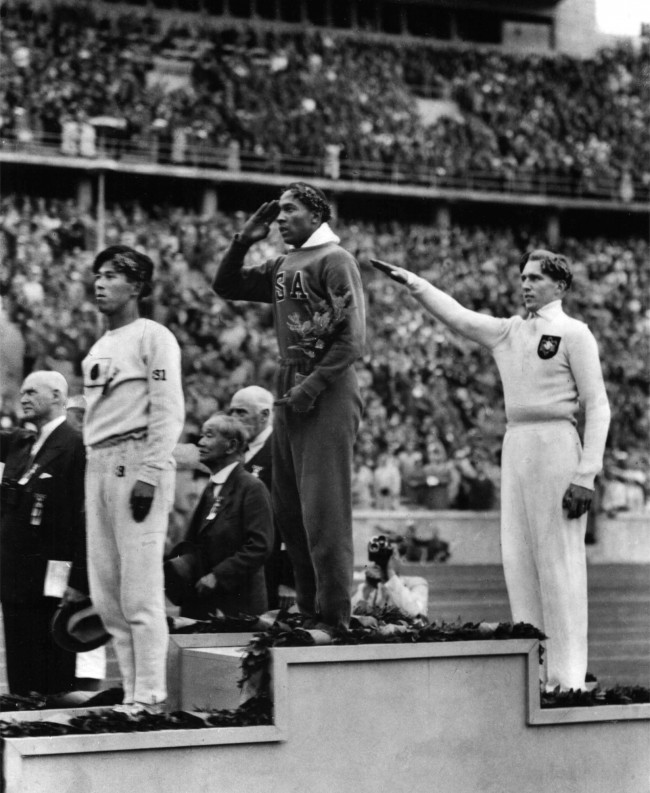
his Aug. 11, 1936 file photo shows America’s Jesse Owens, center, salutes during the presentation of his gold medal for the long jump, after defeating Nazi Germany’s Lutz Long, right, during the 1936 Summer Olympics in Berlin. Naoto Tajima of Japan, left, placed third. The performance of Jesse Owens will be honored in the stadium where he won four gold medals at the 1936 Olympic Games when the world championships are held in Berlin this month. (AP Photo/File)
SAYS the IOC’s Mario Pescante:
“It’s absurd that a country like that sends four lesbians to Russia just to demonstrate that in their country gay rights have (been established). The games should not be an occasion and a stage to promote rights that sports supports daily.”
The US delegation includes Billie Jean King, figure skater Brian Boitano and hockey player Caitlin Cahow.
Pescante wants everyone attending the Games to have only one thought on their mind: win.
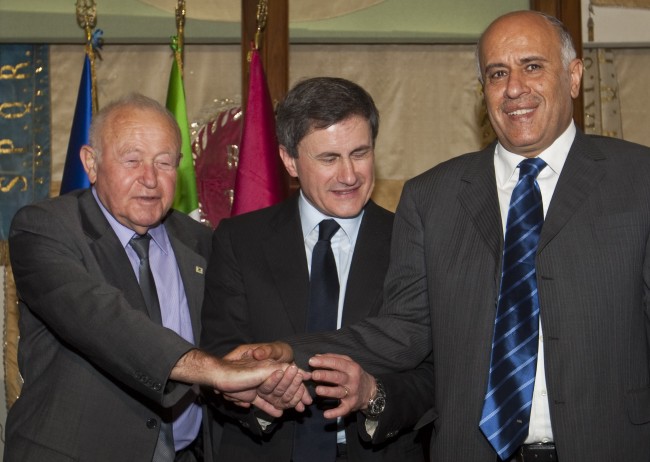
Rome’s Mayor Gianni Alemanno joins the hands of Israeli Olympic Committee President Zvi Varshaviak, left and Palestinian Olympic Committee President Jibril Rajoub, right, at the end of a “Sports for Peace” press conference in Rome, Wednesday, April 20, 2011, where they issued pleas to build stronger ties. During the meeting arranged by International Olympic Committee vice president Mario Pescante, Palestinian Olympic Committee president Jibril Rajoub pushed for Israel to allow its athletes and coaches more freedom to travel from the West Bank and Gaza Strip. (AP Photo/Domenico Stinellis)
Let’s change the words a little:
“It’s absurd that a country like that sends four blacks to Nazi Germany just to demonstrate that in their country equal rights have (been established).”
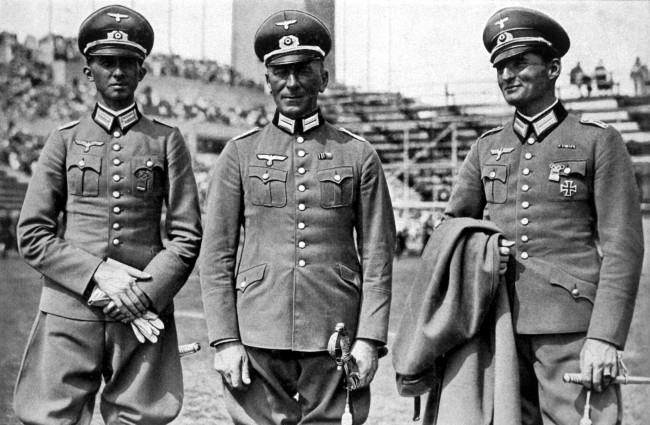
(L-R) The Germany team who won gold in the dressage section: First Lieutenant Heinz Pollay, Major Friedrich Gerhard, Herrmann von Oppeln-Bronikowski
Politics is always there. The London Games kicked off with a display of liberal values and discomfort with what’s gone before.
The 1956 Games were memorable for a water polo match between the Soviet Union and Hungary, the country it had just invaded. Here’s the match report in Sports Illustrated:
“In scoring the first goal, Dezsö Gyarmati of Hungary, who would eventually win medals in five Olympics, nearly KO’d his Soviet opponent. Minutes later, the USSR’s Vyacheslav Kurennoi was sent to the penalty box for slugging. Then the Soviet Union’s Boris Markarov and Hungary’s Antal Bolvari went at it. It was open warfare thereafter, with players from both teams trading blows and headlocks.”
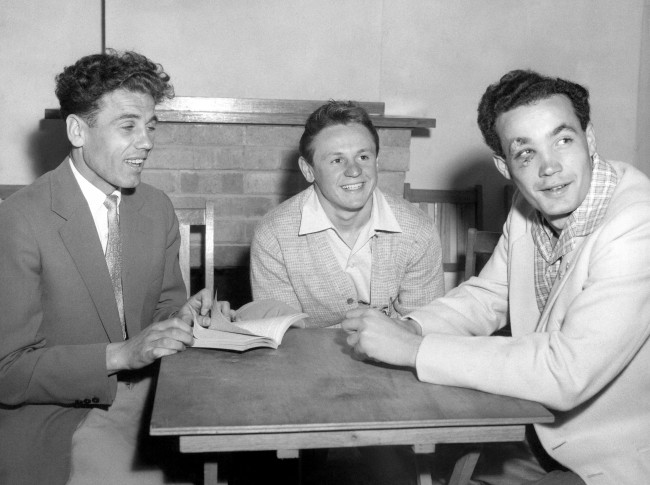
Hungarian athletes, who have indicated that they will not be returning to their homeland, talk over plans at the Olympic Village in Melbourne on Dec. 8, 1956. From left to right are noted miler Laszlo Tabort, and water polo players Gyorgy Karpati and Ervin Zador. The latter has an eye injury suffered in a brawl with a Russian water polo player on 6th December. A number of members of the Hungarian Olympic team have indicated that they will not be returning home. (AP Photo)
And this:

Extending gloved hands skyward in racial protest, U.S. athletes Tommie Smith, center, and John Carlos stare downward during the playing of the Star Spangled Banner after Smith received the gold and Carlos the bronze for the 200 meter run at the Summer Olympic Games in Mexico City on Oct. 16, 1968. Australian silver medalist Peter Norman is at left. (AP Photo/files)
And, of course, this:
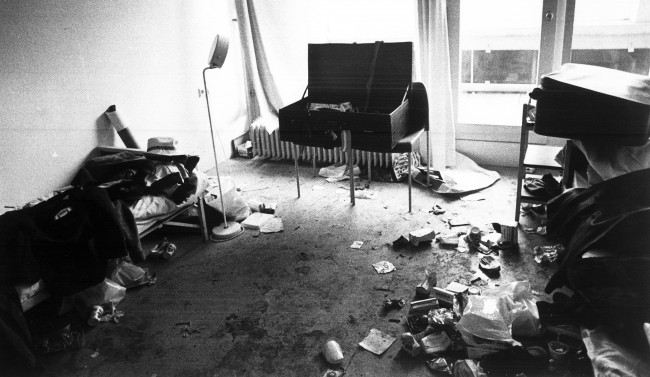
Blood stains mark the place where armed Palestinian terrorists killed 11 Israeli Olympic team members, after keeping them hostage for almost 18 hours. Munich, Sep. 6, 1972. (AP Photo)
Pescante then told the Associated Press:
“We’ve seen boycotts, concerns over Aborigine rights in Australia, the Tibet issue in China. It’s enough already. There are always going to be issues wherever the games are held, but the best way to combat these issues is by letting the games unfold and sending thousands of journalists to these places to report on what is going on there.”
Yeah, look away. Nothing to see…
Posted: 16th, January 2014 | In: Sports Comments (2) | TrackBack | Permalink


